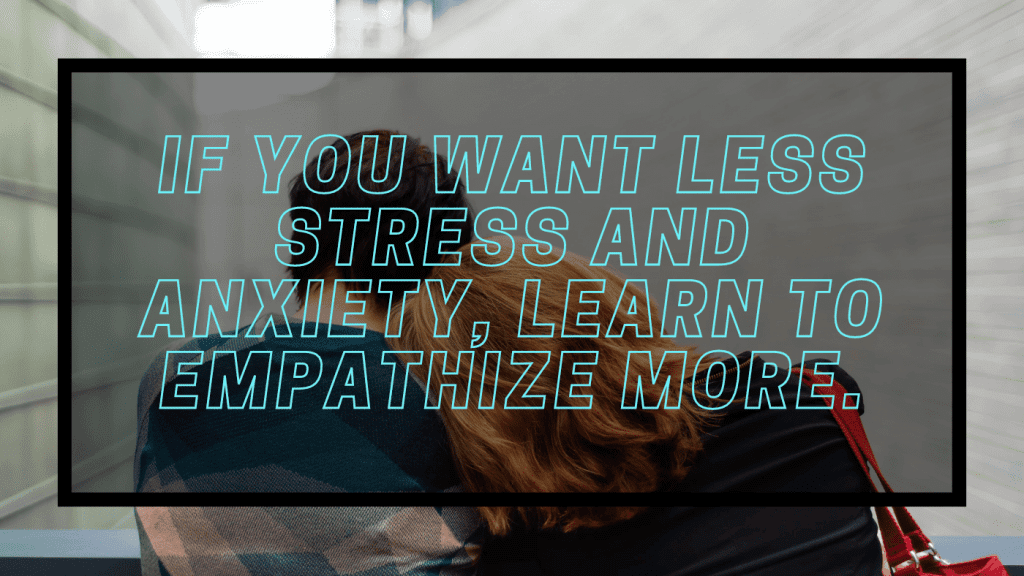
Stress is a killer. You might hear someone say, “The stress at my job is killing me!” They could be overstating the situation. In many cases though, stress can quite literally kill you.
Chronic stress is related to all of the six leading causes of death. It’s believed that more than 75% of all trips to the emergency room or a doctor are stress-related. So the next time a friend tells you stress is killing him, you might want to take that statement seriously.
Ask anyone you know and they’ll tell you of a stressful situation they experienced recently. This is, unfortunately, a common occurrence. You may even have too much stress in your own life.
For a number of reasons, you can benefit from stressing less and relaxing more often. If that sounds like something you’d enjoy, just learn to empathize more.
Simple enough? No? You still have questions? Keep reading!
How Empathy Leads to Less Stress and Depression
An empathetic person can place themselves in the emotional experience of someone else. That’s the first part of empathy. The part of the empathetic process some people forget is responding in a way that’s helpful.
You see that a coworker has a huge workload. She’s stressing out and you know there’s no possible way she can hit that deadline. You communicate to her that even though her productivity is excellent and she’s a great worker, you don’t know how she’s going to get everything done.
You just paid her a compliment. You saw her emotions were frazzled and she wasn’t in a good place mentally. So you said something nice about her ability on the job.
Is that all you would want if you were in that situation?
What you could do after you identify with her situation is to provide assistance. Offer to help her tackle some of her responsibilities. Allow her to work in her zone of genius, her wellspring of talent, doing the things that only she can do while you take on some of the things that you and others could do. When you do this, your coworker will thank you. She’ll experience less stress, and science tells us that you’ll also have less stress, anxiety and depression.
When you learn to recognize that someone else is experiencing negative emotions, you will want to help. This is the response for most people. What also happens is that you subconsciously recognize that you’re not in that situation. You can understand your coworker’s emotional stress, but you aren’t experiencing the same thing yourself.
Dr. Jamil Zaki is a psychology professor and the director of the Social Neuroscience Laboratory in Stanford. He says, “[Empathy] helps us see past differences and allows us to see others who are of a different race or a generation or ideology from our own, without the lens of stereotyping, prejudice, or bias.” But he also believes it’s not just others that benefit from empathy — so does the person feeling it. Prejudice and bias are negative emotions. They can produce a stress response in your body. Empathy prevents that from developing.
Dr. Zaki also says empathy makes people happier in their relationships and even more successful at work. Studies show us that an empathetic person learns how to process his or her own emotions properly by being able to recognize the emotions other people are going through. That means that being more empathetic in your life not only helps others, but it can also give you a wonderful boost from less stress and more peace of mind.
This is an awesome analogy! Thank you for sharing it right when I needed it most!